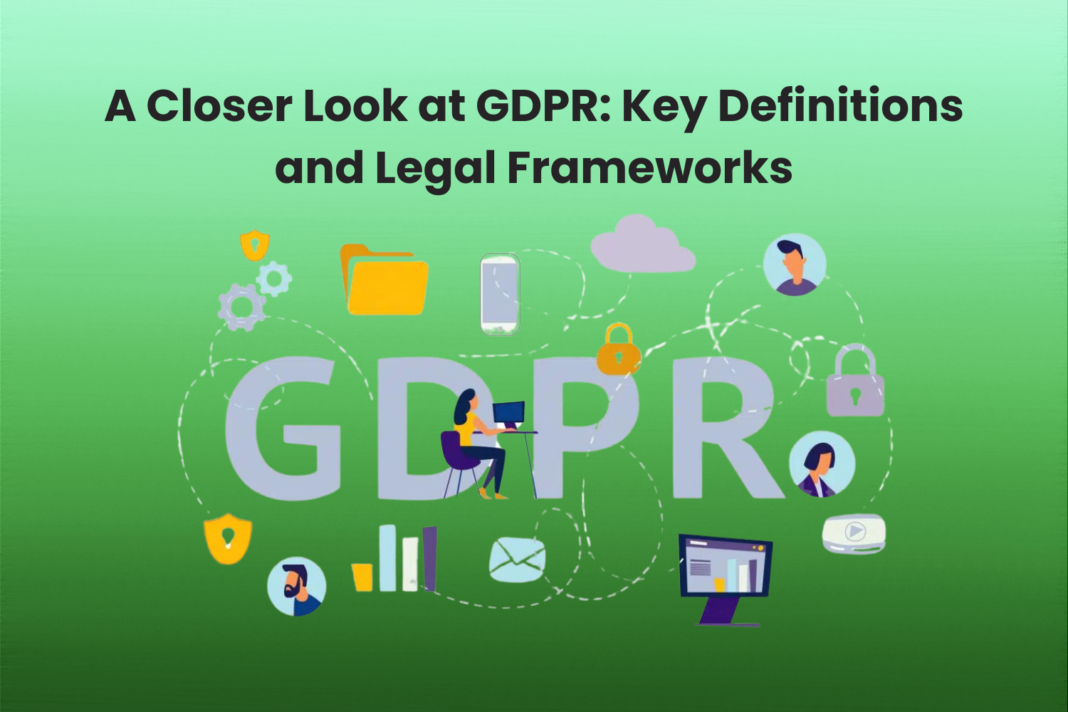Privacy and security have become critical issues when it comes to digital data. The General Data Protection Regulation, or GDPR, is one phrase that has become more well-known in recent years. This extensive set of rules has greatly influenced how companies manage personal data and has sparked discussions about data security and user privacy. In this blog, we’ll go deep into understanding What is GDPR, going into key definitions and the legal frameworks that support this vital component of modern data management.
Table of Contents
- Understanding GDPR
- Key Definitions
- Legal Frameworks Under GDPR
- Data Breaches and GDPR
- Conclusion
Understanding GDPR
Let’s tackle the main question first, then go into the specifics: What is the General Data Protection Regulation? The General Data Protection Regulation (GDPR) is a collection of laws that the European Union (EU) put into place to protect its people’s personal data and privacy. GDPR, which went into effect on May 25, 2018, has raised the bar for data protection globally. Businesses that handle EU people’s data or do business inside the EU must abide by these standards or face harsh penalties.
Key Definitions
Personal Data
The idea of “personal data” is central to GDPR. This phrase covers a broad variety of data, such as names, addresses, email addresses, and even IP addresses. In essence, information is considered personal data if it can be used to identify a specific person. Comprehending the definition of personal data is crucial for entities seeking to adhere to GDPR.
Data Subject
The individual whose personal data is being processed is called the “data subject” under GDPR. This covers clients, staff members, and everybody else whose data an organisation manages. The GDPR gives people more control over their data by strongly emphasising their rights.
Data Controller and Processor
The difference between data controllers and data processors is another critical consideration. While the data processor handles data on the controller’s behalf, the data controller decides how and why to process personal data. Under GDPR, both organisations have significant obligations, strengthening the responsibility of all participants in the data processing cycle.
Legal Frameworks Under GDPR
Lawfulness, Fairness, and Transparency
The GDPR’s fundamental tenet is that processing personal data must be fair, transparent, and legitimate. This implies that entities processing data must have a legitimate reason for doing so and tell data subjects clearly and understandably about the intended use of their information. One legal basis for processing is permission; by GDPR, getting explicit authorisation is essential.
Purpose Limitation and Data Minimisation
GDPR emphasises how crucial it is to gather data with a particular purpose and not use it for unrelated purposes. This idea pushes organisations to be specific in their data-gathering procedures, ensuring they only collect data required for their intended use. This is complemented by data minimisation, which advocates that organisations handle the data necessary for the current goal.
Data Accuracy and Storage Limitation
Under GDPR, ensuring the accuracy of personal data is a major responsibility. Organisations must take reasonable measures to maintain the accuracy of the information and quickly correct any errors. The GDPR also presents the idea of storage limits, which states that personal data shouldn’t be kept around for longer than is required for the intended use.
Security and Accountability
The protection of personal data is a top priority under GDPR. Organisations need to implement suitable organisational and technological safeguards to prevent data breaches. Furthermore, a fundamental tenet of the GDPR is accountability, which holds organisations accountable for proving their adherence to the regulations. This entails keeping track of processing-related actions and, if needed, doing impact analyses on data protection.
Data Breaches and GDPR
The threat of data breaches looms big in linked digital systems, making cybersecurity a top priority for companies. The GDPR tackles this urgent problem by emphasising the need to reduce the risks connected to data breaches. Organisations must have robust security measures in place to safeguard personal data. If a breach occurs, they have a duty to notify the appropriate authorities and the affected parties as soon as possible. This proactive approach to data breaches is consistent with the general objective of GDPR, which is to protect people’s privacy in an increasingly digitalised environment.
Conclusion
Both people and enterprises must understand GDPR as we move through the complicated world of digital data. The blog post’s essential definitions and legal frameworks provide an overview of the GDPR’s expansive scope and emphasise its significance in influencing data protection laws in the future. Following GDPR guarantees legal compliance and promotes an environment of openness and trust, which eventually helps companies and the people whose data they manage. In a world where data is becoming increasingly important, GDPR is a lighthouse pointing towards a more private and secure future.


